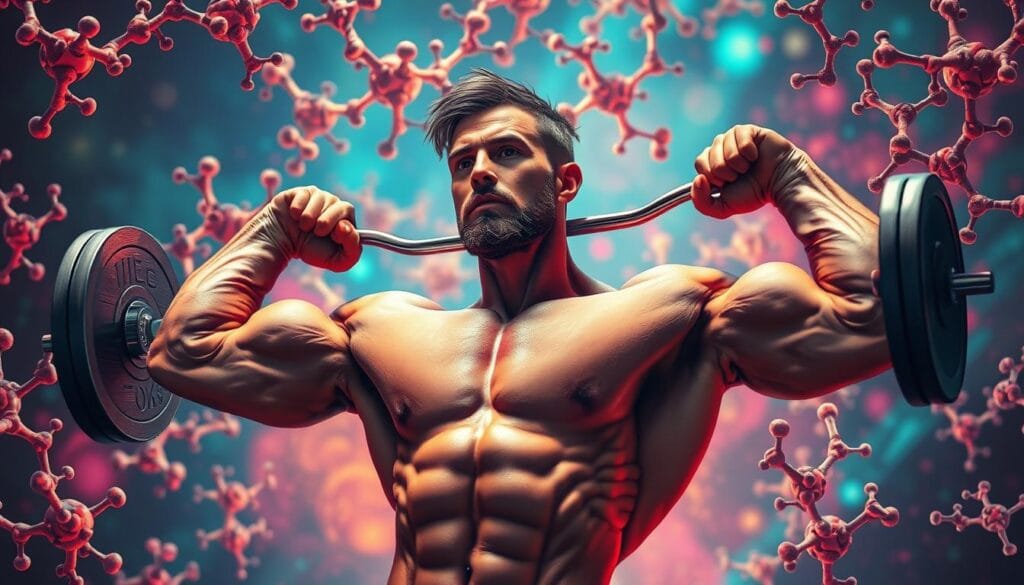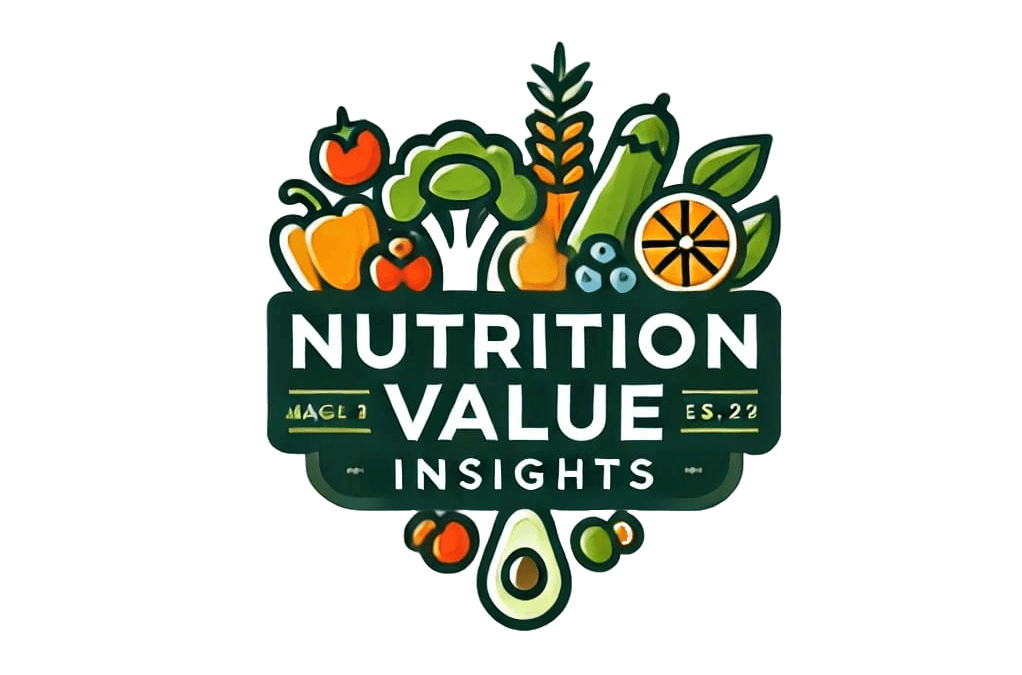Collagen Benefits for Skin and Joints: How This Powerful Protein Supports Your Health
Collagen is a key protein that gives your body structure and strength. It’s found in your bones, skin, muscles, and more. As you get older, your body makes less collagen, causing wrinkles and joint pain.
Many people use collagen supplements to keep their skin looking young and their joints healthy. This helps them feel better overall.
Collagen can help with wrinkles, joint pain, and stronger bones. In this guide, we’ll look at how collagen works and how to add it to your daily routine information nutrition .

Table of Contents
What is collagen benefits ?
Collagen is the most common protein in your body, making up 25-35% of all proteins. It’s the main part of connective tissues like skin, bones, and muscles. It gives these tissues strength, flexibility, and shape.
Types of Collagen
There are 29 types of collagen, but five are the most common. Types I, II, and III are found in most of the body’s collagen.
- Type I Collagen is the most common, making up 90% of the body’s collagen. It’s in skin, bones, and muscles.
- Type II Collagen is mainly in cartilage, helping joints move smoothly.
- Type III Collagen is in blood vessels and organs, giving them structure.
Collagen Supplements
Collagen supplements come in digestible forms like collagen peptides. They’re made from animal tissues. You can find them in pills, powders, or liquids, making it easy to add them to your diet.
| Collagen Supplement Type | Typical Nutritional Profile (per serving) |
|---|---|
| Collagen Peptide Powder | 50 calories, 12g protein, 0g fat, 0g carbs, 0g fiber, 0g sugar |
| Collagen Liquid | Varies by brand, typically 10-20 calories, 2-5g protein per serving |
| Collagen Capsule/Tablet | Varies by brand, typically 500-1000mg collagen per capsule |
Collagen supplements help meet your daily protein needs. They also have amino acids your body needs. Research shows they might improve skin, joints, bones, and muscles.
Top Benefits of Collagen
Collagen is a powerful protein that offers many benefits for your health and well-being. It can improve skin elasticity and relieve joint pain. This versatile compound can transform various aspects of your body. Let’s explore the top benefits of adding collagen to your daily routine.
Improves Skin Health
Collagen greatly enhances skin health. Studies show that taking 1-12 grams of collagen daily for 4-12 weeks improves skin elasticity and hydration. This can reduce wrinkles and dryness, making your skin look younger and more radiant.
Relieves Joint Pain
Collagen is also good for joint pain. It can help cartilage produce more collagen, reducing inflammation and supporting joints. Research indicates that collagen supplements can ease osteoarthritis symptoms and joint discomfort. The daily intake for joint health is usually 2.5 to 15 grams, depending on your needs.
Incorporating collagen into your daily routine can greatly benefit your skin and joints. By understanding its many benefits, you can support your body’s natural processes. This can lead to a more vibrant and comfortable lifestyle.
Collagen for Healthy Bones
Your bones are mostly made of collagen. As you get older, collagen can break down, leading to osteoporosis. Studies show that collagen supplements can slow down bone breakdown. Women who took a supplement with calcium, vitamin D, and collagen had less bone loss than those without collagen.
Collagen is the most common protein in our bodies, making up about 30% of our protein. Our natural collagen production starts to drop in our late 20s and early 30s. By age 40, we lose 25% of our collagen, and then lose 1% every year. Women may lose collagen faster during menopause.
Collagen is key for strong bones, and collagen supplements for bone density have shown good results. Studies found that collagen supplements can boost bone density in postmenopausal women. They also help keep the bone matrix strong and flexible.
| Nutrient | Role in Collagen Production | Vegetarian Sources |
|---|---|---|
| Vitamin C | Essential for collagen production | Broccoli, kale, citrus fruits |
| Proline and Hydroxyproline | Amino acids crucial for collagen production and stability | Beans, soy |
| Silica | Aids collagen synthesis | Oats, avocados |
| Strontium | Supports collagen synthesis | Brazil nuts, root vegetables |
| Copper | Vital in collagen production | Lentils, almonds |
| Lysine | Important for collagen stability | Tofu, dairy products |
| Manganese | Increases collagen production | Leafy vegetables, nuts |
| Zinc | Enhances collagen synthesis | Seeds, nuts |
To keep collagen levels healthy and support collagen for bone health, eat a diet rich in nutrients. Focus on foods that help make collagen. This way, you can support your body’s collagen production and keep your bones strong and flexible.
“Collagen plays a vital role in bone health as it constitutes 90% of the bone matrix, providing structure and flexibility to bones.”
Collagen for Muscle Mass
Collagen is key for muscle health. Research shows it might help increase muscle mass. A study found older men with muscle loss who took 15 grams of collagen daily gained more muscle and strength. They did this while exercising.
The amino acid glycine in collagen is important. It helps make creatine, which gives energy to muscles. Collagen also helps muscles repair and grow. This is great for those losing muscle with age.
More research is needed to fully grasp collagen’s muscle benefits. But, combining collagen with exercise seems to help a lot. It supports collagen for muscle growth and keeps muscles healthy.
“Collagen supplements, when combined with resistance training, may be an effective way to boost muscle mass and strength, especially in older adults struggling with sarcopenia.”
Want to use collagen supplements for sarcopenia or boost your collagen and exercise routine? Try a high-quality collagen supplement. Always talk to a healthcare professional before starting new supplements.

Focus on collagen and exercise to keep or grow muscle mass. This supports your health and fitness as you get older.
Collagen Benefits for Heart Health
Collagen is more than a beauty supplement. It’s great for your heart health too. This protein is key for your arteries’ structure and function. It keeps them flexible and strong.
Without enough collagen, your arteries can lose their elasticity. This can lead to atherosclerosis. Atherosclerosis raises your risk of heart attack and stroke.
Research shows collagen supplements can boost heart health. A study found that taking 16 grams of collagen daily for 6 months helped. It reduced artery stiffness and raised HDL (good) cholesterol levels.
While more research is needed, these results are promising. They suggest collagen is a valuable ally for a healthy heart.
“Collagen provides structure to your arteries, and without enough of it, arteries may become less flexible and elastic, leading to a condition called atherosclerosis that can increase the risk of heart attack and stroke.”
Collagen helps keep your arteries strong and flexible. This can prevent plaque buildup. Plaque buildup can block blood flow and cause heart problems.
While more research is needed, the current evidence is encouraging. Adding collagen-rich foods or supplements to your diet may help keep your heart healthy.
Collagen and Gut Health
Research shows collagen is key for a healthy gut. People with inflammatory digestive diseases like IBD often have less collagen. Taking collagen supplements can help fix this and aid in gut healing.
Some people say collagen supplements boost their digestion and reduce bloating. But, we need more studies to be sure. The link between collagen and gut health is very promising for those with digestive problems.
Oral Supplements May Promote Gut Health
Collagen is the most common protein in our bodies. It helps build skin, hair, nails, joints, cartilage, and bones. Supplements with bioactive collagen peptides can feed good bacteria in our guts. This helps strengthen our gut walls.
A 2022 study showed collagen supplements might help with digestion in healthy women. Over 8 weeks, they saw minor improvements. This suggests collagen could support gut health and ease digestive issues.
“Collagen supplements may help correct deficiencies and provide a supportive environment for the body to heal the gut.”
Collagen Benefits for Hair and Nails
Research is still growing, but it looks like collagen might help your hair and nails. This protein could make your hair grow stronger and your nails more resilient. Let’s dive into how it can benefit your appearance.
Collagen for Hair Growth
Collagen is crucial for hair follicles. Some studies suggest it can boost hair growth and prevent breakage. A 2021 review of 19 studies found that collagen supplements improved skin hydration, elasticity, and wrinkles in 1,125 people. A 2023 review of 26 studies and 1,721 participants also showed better skin hydration and elasticity. This could be good for your hair too.
Collagen for Nail Strength
Collagen might also strengthen your nails. Research suggests it could help with joint pain, bone density, and brittle nails. Some people say collagen has made their nails stronger and less prone to breaking.
| Collagen Benefit | Potential Impact |
|---|---|
| Hair Growth | May promote hair growth and prevent breakage |
| Nail Strength | May help strengthen nails and reduce brittleness |
While research on collagen for hair and nails is still new, many people have seen good results. If you’re thinking about trying collagen, talk to your doctor first.
Collagen Benefits for Skin and Joints
Collagen is a key part of your skin, giving it structure and elasticity. As you get older, your body makes less collagen. This can cause dry skin and wrinkles. Studies show that taking 1-12 grams of collagen for skin elasticity per day can improve your skin’s hydration and elasticity.
Collagen is also vital for your joints. It’s a big part of the cartilage in your joints. Some research suggests that collagen for joint pain supplements may help ease collagen and osteoarthritis symptoms and reduce joint pain.
Collagen makes up about a third of all the protein in the body. There are 16 different types, with most being type I, II, or III. As people age, they produce less collagen. This process is sped up by sun exposure, smoking, and too much sugar.
“Collagen is the most common protein in the body, found in various structures like skin and joints.”
While supplements may offer some benefits, there’s not much proof they work for skin issues or joint pain. Eating healthy foods like chicken, fish, eggs, dairy, and beans can help your body make more collagen. These foods usually give your body enough collagen it needs.

When looking at collagen supplements, be careful of false claims. The FDA doesn’t regulate these products. Talking to a healthcare professional and checking the ingredients can help you make a smart choice.
Food Sources of Collagen
Boosting your collagen intake is easy with supplements, but diet plays a big role too. Many whole foods are packed with collagen or nutrients that help your body make its own collagen.
Natural Collagen-Rich Foods
Here are some top foods for collagen:
- Bone Broth – It’s made by simmering animal bones and connective tissues. But, a 2019 study showed it might not have enough collagen to make a big difference.
- Chicken and Pork Skin – These are full of types I and III collagen.
- Beef – Especially from the hide and bones, it’s a good source of types I and III collagen.
- Fish and Shellfish – Their skin, scales, and bones have type I collagen. A 2023 review found marine collagen might be better for skin health.
- Eggs – Eggs don’t have connective tissues, but their whites have proline, key for collagen.
Some fruits, veggies, and foods help your body make collagen:
- Citrus Fruits – Oranges, grapefruits, lemons, and limes are full of vitamin C, vital for collagen.
- Berries – They’re packed with antioxidants that protect the skin and support collagen.
- Tropical Fruits – Mango, kiwi, pineapple, and guava have vitamin C and zinc for collagen.
- Garlic – It has sulfur, helping make and keep collagen.
- Leafy Greens – Spinach and kale have chlorophyll, which may boost skin collagen precursors.
- Beans – They’re rich in lysine and copper, needed for collagen.
- Nuts and Seeds – Cashews have zinc and copper, aiding collagen production.
- Tomatoes – They offer vitamin C and lycopene, supporting skin health and collagen.
Eating these foods can help your body make more collagen. But, how well your body absorbs collagen from food depends on your age, health, and metabolism.
Conclusion
Collagen is a key protein that gives your body structure and support. It helps improve your skin’s elasticity and joint health. It also supports muscle mass and heart function.
Collagen supplements can help boost your intake. But, you can also get more collagen from foods. This way, you can naturally increase your collagen levels.
Getting enough collagen supports your skin, joints, bones, and muscles. It’s crucial for maintaining youthful skin and reducing joint pain. It also helps with physical function as you age.
By focusing on collagen, you can improve your skin, joints, and overall health. Adding collagen to your diet or using supplements is a smart choice. It’s an investment in your long-term health and vitality.
FAQ
What is collagen and what are the different types?
Collagen is the most common protein in our bodies. It gives structure, strength, and support to tissues. There are 29 types of collagen, but types I, II, and III are the most common.
What are the main benefits of taking collagen supplements?
Collagen supplements offer many health benefits. They can improve skin health, reduce joint pain, and support bones. They also help build muscle and promote heart and gut health.
How does collagen help with skin health and anti-aging?
As we age, our collagen production drops, causing dry skin and wrinkles. Studies show that 1-12 grams of collagen daily can improve skin hydration and elasticity. It’s a great anti-aging supplement.
Can collagen help with joint pain and osteoarthritis?
Yes, collagen supplements may ease osteoarthritis symptoms and joint pain. They help build cartilage and reduce inflammation, supporting joints better.
How does collagen support bone health?
Collagen is crucial for bone health. As we age, its loss can lead to osteoporosis. Supplements may slow bone breakdown, especially with calcium and vitamin D.
Can collagen help increase muscle mass?
Yes, collagen can boost muscle mass, especially in older adults. A study found that older men taking 15 grams of collagen gained more muscle and strength than those without it.
What are the cardiovascular benefits of collagen?
Collagen keeps arteries flexible and elastic. Without enough, arteries stiffen, raising heart attack and stroke risks. Daily collagen intake can reduce artery stiffness and boost good cholesterol.
Can collagen supplements improve gut health?
In some cases, yes. Collagen supplements may help those with inflammatory digestive conditions. They can also improve digestion and reduce bloating in healthy individuals.
Does collagen have any benefits for hair and nails?
Some studies suggest collagen can strengthen nails. It may also prevent hair from breaking easily. However, more research is needed on its effects on hair health.
What are some natural sources of collagen?
You can get collagen from your diet. Bone broth, pork skin, chicken skin, beef, fish, and vitamin C-rich fruits and vegetables are good sources.
DID OUR INFORMATION HELP YOU ?
There are no reviews yet. Be the first one to write one.

